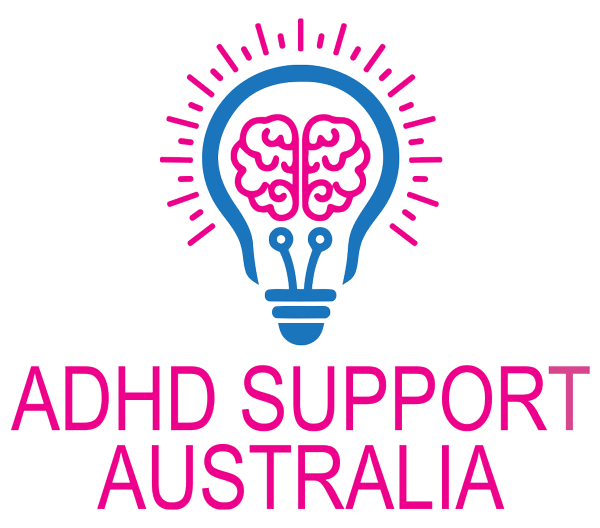
Can Nutrients Help ADHD Symptoms?
Can Nutrients Help ADHD Symptoms?
Could your ADHD/ADD, OCD, ODD, anxiety or depression symptoms be caused by a nutritional deficiency?
What if nutritional supplements could alleviate your symptoms by balancing your brain chemistry without the side effects of pharmaceutical medications?
That is exactly what William J Walsh PhD has spent the last 35 years researching and implementing with great success. The little knowledge I have regarding brain chemistry, nutrient deficiencies and cognitive function is clearly explained and greatly expanded on in detail in his book ‘Nutrient Power – Heal Your Biochemistry and Heal Your Brain’.
The explanations and treatments he suggests make perfect sense to me when considered in conjunction with the symptoms of myself and my daughter and the various test results we have received.
Could you be nutrient deficient?
If you consider your diet to be a healthy one, but still suffer with one of the above disorders, you may well be skeptical, assuming that in our modern world of plenty no one could possibly be deficient in nutrients. However, studies show it is almost impossible to obtain all our required nutrients from food alone. In fact one study showed you would need to eat an average of 27,575 calories to supply sufficient essential nutrients. Some reasons for this include:
- Commercial farming practices deplete soil of nutrition
- New fruit/vegetable varieties have lower mineral contents
- Pesticide use decreases plants nutritional content
- Long distance transport causes further nutrient degradation
- Non-organic/non-grass-fed meat is lower in nutrients
- Environmental toxins increase body’s need for nutrients
- Genetic factors predispose some to nutritional deficiencies
- Malabsorption via digestive system e.g. coeliac disease
Nutrient Power
William Walsh is a scientist with over 35 years research experience in developing natural treatment protocols for patients with neurological disorders such as ADHD, Autism, anxiety, depression, bipolar, schizophrenia and Alzheimer’s disease and doctors worldwide are currently using his treatments.
Walsh’s system of nutrient therapy aims to normalize the brain without the risk of pharmaceutical side effects. His approach, based on scientific research, appears to be more accurate than the often trial-and-error use of current psychiatric drugs and could potentially benefit millions who suffer with a range of mental disorders.
The Biochemistry of behavioural disorders and ADHD
It is known that brain function is affected by the following:
- Copper – important in converting dopamine to norepinephrine
- Zinc – necessary for efficient regulation of GABA
- Vitamin B6 – required to synthesise several neurotransmitters
- Methionine and folic acid – impact on synaptic activity
- Toxic overloads – detrimental to brain function
Dr Walsh’s vast database of 1.5 million chemical assays from 10,000 patients with behavioural disorders, including 5,600 who were diagnosed with ADHD, showed significant chemical imbalances in 94% of the 10,000. The remaining 6% had some other type of brain injury.
The major cause of ADHD symptoms is low dopamine levels and elevated norepinephrine and adrenal activity and this is what pharmaceutical stimulant medications, such as Ritalin, seek to improve. As noted above, copper is involved in converting dopamine to norepinephrine, so high copper levels will result in the low dopamine and elevated norepinephrine situation found in ADHD patients.
68% of Walsh’s patients exhibited a seriously elevated copper/zinc ratio in their blood and tissues. Behaviours associated with this are episodic rage disorder and ADHD. Regulation of these trace metals can greatly reduce hyperactivity and improve attention span.
Therefore, it makes sense to balance zinc and copper levels using nutrient therapy, as this is able to achieve similar results as stimulant medication minus the side effects that often come with them, such as appetite suppression, delayed growth, tics, insomnia and anxiety.
Similarly, Dr Walsh discovered over 50% of patients were deficient in folic acid, B12, zinc and choline and developed better focus and behaviour after supplementing with these nutrients.
In Walsh’s experience 80% of his ADHD and BD patients were able to eventually cease their stimulant medication without symptoms returning. The remaining 20% felt that without the medication some benefits were lost, but were able to reduce dosages.
Methylation Disorders
Walsh identifies two methylation disorders – undermethylation and overmethylation. These are established via blood tests. These disorders are often genetic in nature and related to a defective gene such as MTHFR.
Overmethylation is characterized by depressed blood histamine levels, elevated methyl/folate ratio and elevated dopamine and norepinephrine and is associated with anxiety, paranoia and depression.
Undermethylation is characterized by high blood histamine, depressed methyl/folate ratio and low dopamine activity and serotonin neurotransmitters.
Oppositional Defiance Disorder (ODD)
People with ODD are more likely to have undermethylation. Walsh found a high success rate using a nutrient protocol resulting in treated patients being able to eliminate psychiatric medications without subsequent bad behaviour.
Pyrolle Disorder
Nearly one third of Walsh’s patients had high levels of urinary pyrolles. In pyrolle disorder excessive amounts of B6 and zinc are lost in the urine. Deficiencies of these nutrients can result in poor stress control and explosive anger. Treatment focuses on supplementing with these nutrients to remedy the deficiency and reverse symptoms.
Heavy Metal Overload
17.9% of Walsh’s patients were found to have elevated levels of lead, cadmium and other toxic metals – known contributors to behavioural disorders and academic underachievement. To assist in excretion of these toxins from the body, his patients are treated with various nutrients such as calcium, zinc, manganese, pyridoxine, selenium and antioxidants.
Glucose dyscontrol
Some 30.4% of Walsh’s patients had unusually low blood glucose levels, which whilst not being a direct cause of ADHD symptoms can be seen as an aggravating factor. This can be alleviated using chromium picolinate, manganese and dietary modifications.
The Clinical Process
Walsh advocates a five-step process for his nutrient therapy:
- Medical history and review of symptoms
- Lab testing of blood and urine
- Diagnosis of chemical imbalance
- Treatment design
- Aftercare
Each of these steps are crucial to the success of the treatment and the process, being biochemically complex, needs supervision by a medical professional experienced in these treatments.
Nutrient deficiencies and overloads have a potent effect on cognitive functioning and getting it wrong could end up causing harm. So the message here is don’t try and do this yourself – find yourself a doctor experienced in this treatment. After all, even if you think it might be a good idea to supplement with an innocent multivitamin and mineral tablet, if a copper overload is present and that supplement contains copper, it could have an adverse effect.
How long will it take?
According to Dr Walsh progress time depends on the particular imbalances being treated with the fastest results seen by pyrrole patients who can feel calmer after only a few days. Treatment for undermethylation on the other hand typically takes 30-60 days for improvements to show, although some additional factors may increase this to six months.
Three months of nutrient therapy is usually required for ADHD children to achieve full effect, if they have no additional factors at play, whilst the response time for adults with ADHD is usually more than six months.
Why should I try this approach?
Walsh’s outcome studies consistently demonstrate children with behavioural disorders achieve the most rapid improvements and highest efficacy rates of all patient groups – often within a couple of months.
It seems clear from Walsh’s research that there is definite connection between chemical imbalances and nutrient deficiencies in people suffering with neurological disorders. It also shows evidence of nutrient therapy being an effective treatment, devoid of the side effects that are common with pharmaceutical medications.
Severe chemical imbalances cannot be overcome by love or any number of behavioural therapies. The only treatment is to focus on correcting brain chemistry.
So if you are looking for a long-term, natural approach to treating neurological disorders such as ADHD, Autism, anxiety, depression, bipolar, schizophrenia and Alzheimer’s disease Nutrient Power is a must read. Read the book for a more in-depth explanation and then find yourself a functional medicine practitioner or integrative health professional to guide you through the process to hopefully finding a solution to your mental health challenges.
I recommend Booktopia for book purchases as they offer free worldwide delivery, great value and have a great range plus they donate 5% on orders made using my link which goes towards the running of ADHD Support Australia.
The author, Vivian Dunstan, is Founder & CEO of ADHD Support Australia ADDCA trained ADHD Coach, Parent Coach & Facilitator of Parenting Children with ADHD – a 6-week online course, Certified Tech Addiction & Digital Health Educator (NIDHW) and Facilitator of the 6-week online Digital Parenting Program, Certified PEERS Social Skills for Teens & Young Adults coach and program facilitator, Certified NeuroACT provider & course facilitator, non-practicing teacher, parent of a young adult with ADHD and has ADHD herself.
References:
Walsh, W, ‘Nutrient Power – Heal your biochemistry, Heal your Brain’ (2012), Skyhorse Publishing, New York, USA
http://www.ncbi.nlm.nih.gov/pubmed/20537171
http://www.ncbi.nlm.nih.gov/pubmed/24724766
http://www.bengreenfieldfitness.com/2014/05/what-is-the-best-multivitamin/
LEGAL DISCLAIMER
All advice provided is for informational purposes only and is not intended to be, or serve as a substitute for professional medical or psychological advice, examination, diagnosis or treatment. Always seek the advice of your doctor or other qualified professionals with any questions you may have regarding a medical or psychological condition. Never disregard professional medical advice or delay in seeking it because of information you accessed through this website, blog, Facebook page, Instagram or Twitter or from any communication with ADHD Support Australia.
